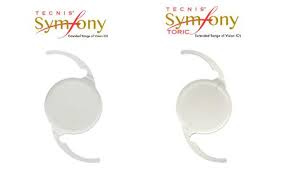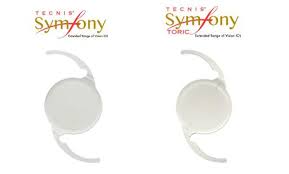 IOL stands for intraocular lens, and it’s a medical device that replaces the lens of your eye after it’s removed during cataract surgery. There are many different types of IOLs approved by the FDA and the right one for you depends on a number of factors.
IOL stands for intraocular lens, and it’s a medical device that replaces the lens of your eye after it’s removed during cataract surgery. There are many different types of IOLs approved by the FDA and the right one for you depends on a number of factors.
If your goal after cataract surgery is excellent vision without glasses or contacts, Rochester Eye and Laser Center offers Advanced Multifocal or Accommodating IOLs for a continuous range of vision correction well into your future. These Advanced IOLs provide correction for both near and distance vision and everything in between.
It is important to precisely measure the focusing power of the new lens for your vision goals, so Dr. Lindahl will work closely with you to determine the best Advanced IOL option for you.
Advanced lenses are not covered by Medicare and are available for an additional charge, up to $2,500 per eye. Discuss costs and payment options with our staff when you have your evaluation.
Here are a few types of IOLs to consider:
Monofocal
A conventional monofocal IOL is set to focus at one fixed distance. Traditional cataract surgery covers this lens, although it is subject to deductibles and co-insurance. You will likely need glasses 100% of the time for intermediate/near activities and may need them for distance, depending on the amount of astigmatism.
Aspheric
The eye’s natural lens isn’t spherical like a typical monofocal IOL. An aspheric IOL most closely matches the eye’s shape, reducing the chance of developing minor optical imperfections that may result from using a spherical lens. This means that an aspheric lens will allow for sharper vision, especially when lighting isn’t ideal. Again, astigmatism is not corrected with this option, so glasses may be needed for both near and far.
Toric
A toric IOL corrects for astigmatism by allowing for different powers in different meridians of the lens. The cataract surgeon can mark the patient’s cornea indicating the most curved part of the cornea. Once the toric IOL is in place, the surgeon can align the markings on the cornea with the markings on the IOL to make sure the astigmatism is corrected. With astigmatism corrected, the need for distance glasses is markedly reduced.
Accommodating
Accommodating IOLs are aspheric lenses with flexible supporting legs called haptics that hold the lens in place. These flexible legs allow the patient to focus more easily when engaging in tasks like reading or using the computer, thus reducing the need for contacts or glasses after surgery.
Multifocal
Multifocal IOLs have been shown to provide both near and distance vision, they are also prone to cause some glare and halos at night. Multifocal IOLs achieve better near vision with the addition of extra magnification in certain parts of the lens. As a result, multifocal IOLs markedly reduce your need to use glasses for activities like reading or using a computer.
Multifocal lenses are also available with a toric option to treat astigmatism.
As you can see, premium IOLs like aspheric, toric, accommodating, and multifocal offer a number of benefits over standard monofocal IOLs. It’s important to note that some lenses aren’t covered by Medicare. If this is a concern for you, be sure and do your research before choosing an IOL. You can speak to our Cataract Specialist to learn more at 585-342-7985.
Schedule your appointment at the Rochester Eye & Laser Center, where you will meet with Dr. Ken Lindahl, the #1 Femto Laser Bladeless Cataract Surgeon in the Rochester area, for a comprehensive exam and discuss which IOL option will work best to optimize your vision outcome.
Ask Dr. Lindahl about the TECNIS Symfony IOL-the first and only Extended Depth of Focus Presbyopia-Correcting IOL that provides continuous high-quality vision at any distance.

Take our free online cataract assessment to see if you may need to have your eyes checked for cataracts soon.

If this article was of interest, you may also like:
Cataract Surgery: Blade vs. Blade-free?
 The Rochester Eye & Laser Team
The Rochester Eye & Laser Team

 IOL stands for
IOL stands for 



